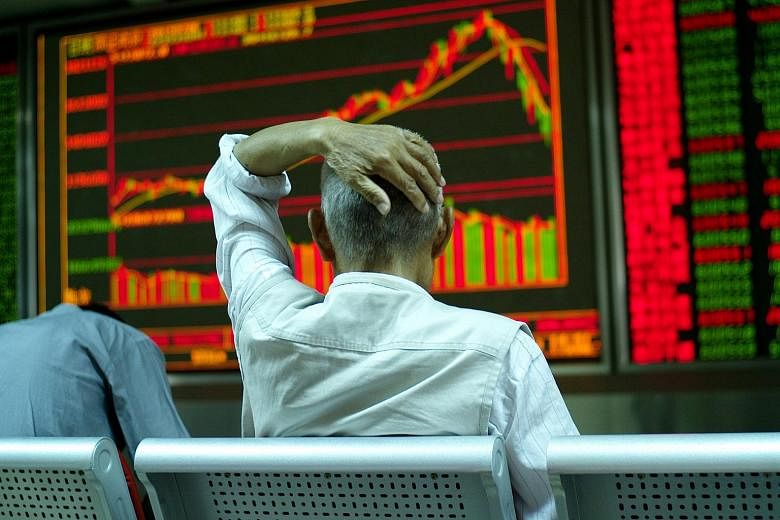BEIJING (REUTERS, BLOOMBERG) - China's state asset administrator told central government owned firms on Wednesday that they should not sell shares in their own listed companies during "unusual market volatility", as Chinese stocks continue to plunge despite a series of emergency support measures from Beijing.
The State-owned Assets Supervision and Administration Commission of the State Council also told the 112 central government-owned conglomerates it oversees to buy more shares in listed firms they controlled in order to stabilise share prices.
The CSI300 index of the largest listed companies in Shanghai and Shenzhen fell about 5 per cent by midday, taking losses to around 30 per cent since mid-June.
The Shanghai Composite tumbled as much as 8.2 per cent on opening, the biggest drop since 2007, before paring losses to 3.88 per cent to about noon local time. The benchmark gauge has slumped 30 per cent since the June peak.
China's central bank said on Wednesday that it will support stability in the stock market and guard against systemic and regional financial risks.
The People's Bank of China will provide sufficient liquidity to China Securities Finance Corp, the state-backed margin finance company, via various channels, the central bank said in a statement on its website.
A wave of Chinese companies have halted trading in their shares as regulators unveiled new measures to prop up the value of small-cap stocks in the latest attempts to stem a rout that's wiped more than US$3.5 trillion (S$4.75 trillion) of value.
At least 1,249 companies have halted trading on mainland Chinese exchanges, locking up US$2.2 trillion of shares, or about 33 per cent of China's market capitalization.
The China Financial Futures Exchange raised margin requirements for sell orders on CSI 500 index futures, while China Securities Finance Corp. said it will buy more shares of small- and mid-cap companies.
Selling by leveraged traders is weighing on the market, with the outstanding balance of margin debt on the Shanghai Stock Exchange falling by a record 8.5 per cent on Tuesday.
"The market has failed," said Hao Hong, a China strategist at Bocom International Holdings Co. in Hong Kong. "The market has become less transparent, less efficient, and less fair."

